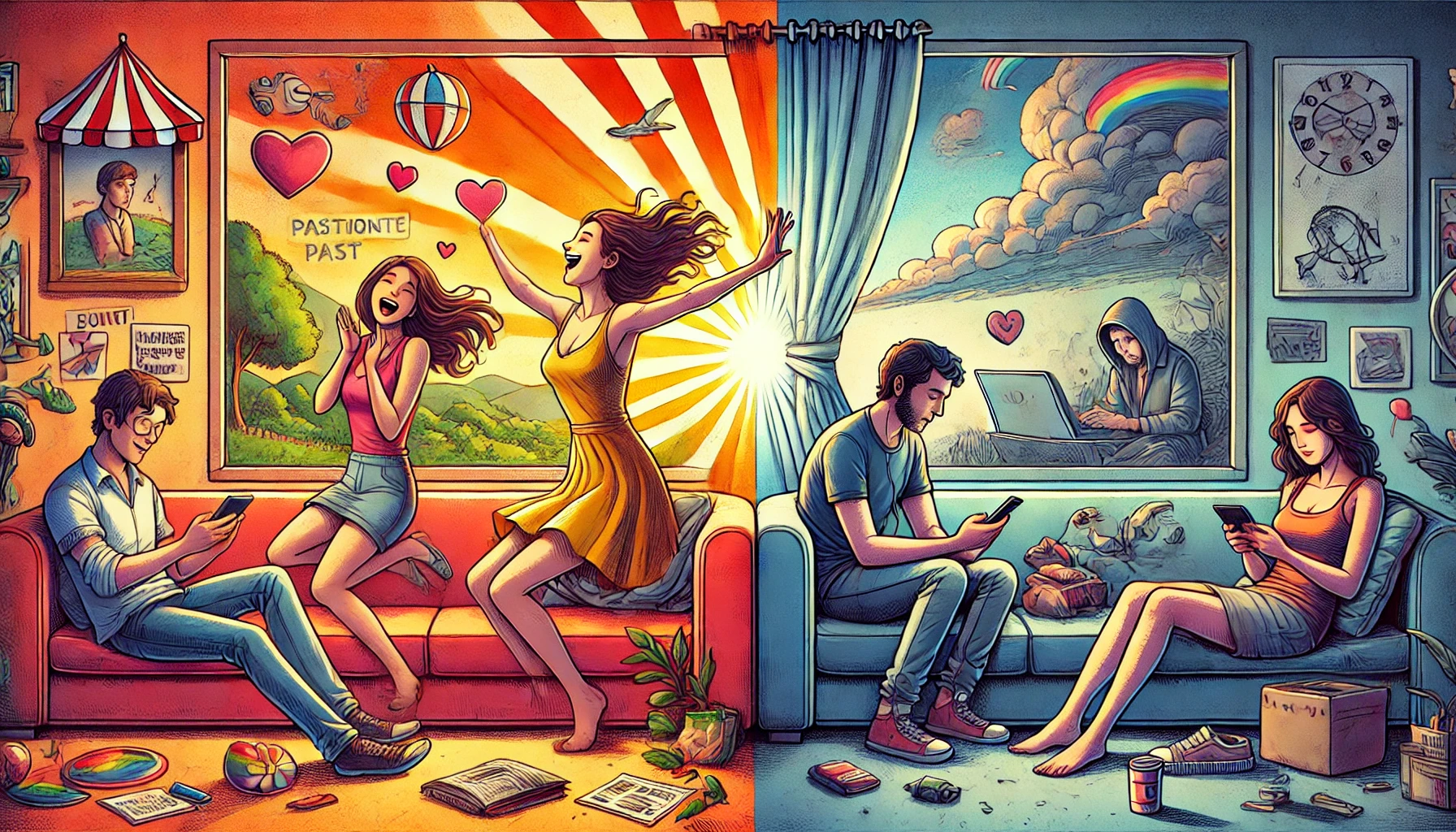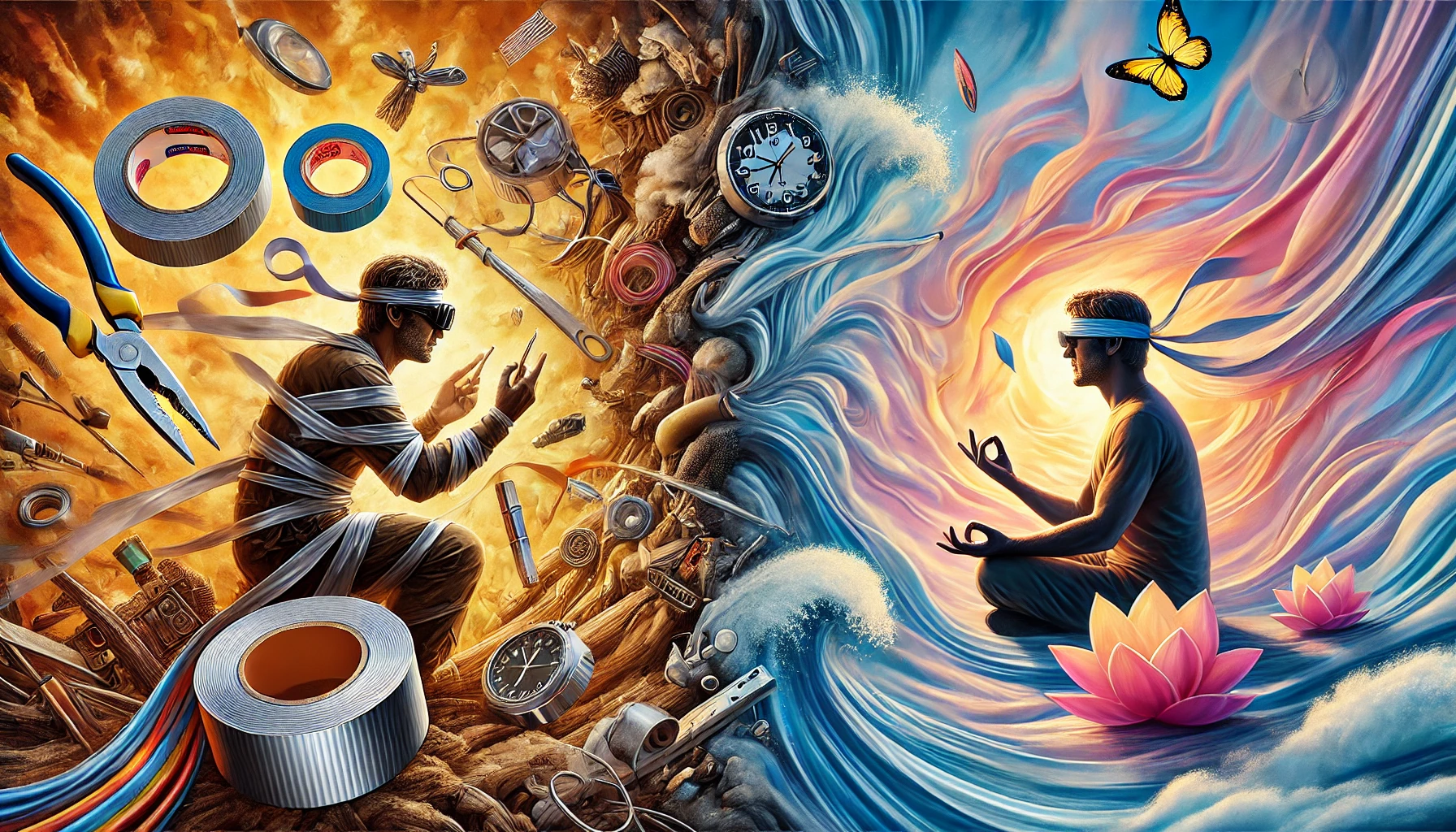Last Saturday I woke up stressing about my financial situation, so I hopped out of bed and went over my bank and credit card accounts. Reviewing my December purchases, I could see that I had let holiday gift shopping turn into a month-long “one for you and one for me” event.
As with Christmas cookie eating, this spending frenzy has been hard to shake in January. My brain pronounces that life will be complete once I own just a few more things—like an air fryer, a mediation cushion and another scarf in one more color. I was so good in the fall, hardly buying anything for months. Don’t I deserve to splurge a little?
This kind of thinking sounds remarkably similar to the mental gymnastics I did for years when I was drinking. If I “behaved” for more than a day or two, I was thus entitled to relax and have a couple glasses of wine. But two glasses often turned into a whole bottle, and then the next morning I was promising myself all over again that I would shape up.
Experts warn that those trying to kick alcohol and drug addictions run the risk of shifting to other potentially destructive behaviors like binge eating, gambling, or shopping.
In sobriety, I have been standing close guard over myself, monitoring and analyzing all of my compulsive behaviors. Spending and obsessing over money are longstanding habits that originated from growing up in a lower-middle class family that leaved heavily on credit cards.
You don’t have to come from a financially struggling household to have issues with money. In the US, an estimated six percent of the population suffers from compulsive buying behavior. At any income level, shopping can temporarily fill an emotional hole.
Bored? Go to the mall. Feeling like your life is out of control? Hop online and make a quick purchase. Sad or anxious? Pamper yourself with an expensive treat. Want a boost of confidence? Plunk down the bucks for a pricey status symbol.
We live in a consumer-oriented society. Most people have something they like to spend money on, whether it’s books, clothing, technology, collectibles, fancy dinners out, or whatever brings them joy. Half the excitement of starting a new hobby is all the cool stuff you’re supposed to buy to go along with that activity.
Here are a few examples from my life. Maybe you can relate to one or more of these situations.
Obsessing: Recently I saw a cool jacket on sale. It was a great price, but I have plenty of coats, so I stayed strong and left the store without buying it. Well, I couldn’t get that dang jacket off my mind. The next week, I went back to the store, and the clothing displays had been rearranged. I rustled through countless sales racks looking for that jacket. Thankfully, it was gone, but now I’m wondering if I can find a similar coat elsewhere.
Rationalizing: When I wanted a drink, I always had a reason handy. Conjuring up justifications for spending is no different. Look, it’s 50% off! It will help me lead a healthier life. I’ve never seen anything like it. It’s going to last forever. Everyone else has one. Mine is broken. It’ll make me look more professional at work. For me, these rationalizations make me forget that I don’t have extra money to spend. This winter I bought gloves in six different colors, and I convinced myself I needed every pair.
Fibbing or keeping secrets: My mother, who lives with us, is a hawk and always notices if I’m wearing something new. She has a way of making me feel guilty about spending money, so I often shave a bit off the price if she inquires. Over the holidays, a guest at our dinner table noted how much a Le Creuset Dutch oven costs, and I thought my mom was going to faint. I quickly assured her that we bought ours on a steep sale (though not quite as steep as I implied).
Riding the roller coaster: When my husband and I first saw our house, we fell in love with it. My adrenaline was pumping, and my hands were literally shaking as we discussed whether we could afford to sell our townhouse and move into a much more expensive home. The high of taking the leap was very real. And the deflation and fear that followed the closing were also quite real. Many people would call it an irresponsible decision, but it was impossible to resist.
Fixating on numbers: My obsession with money goes beyond buying. I spend hours tracking my various bank accounts and credit card balances, paying all the bills, comparing product prices between stores, saving receipts and setting arbitrary spending limits that I instantly override. I constantly worry about money, and yet I refuse to create and follow a budget.
I’ve been fortunate enough not to experience serious financial issues, but I did almost default on my student loans, and I’ve had periods in my life when I practically lived on credit cards.
Now that I’m not drinking, I have the ultimate excuse to spend just a little more. I’m no longer buying all those bottles of wine, so that freed up some dough, right? And haven’t I earned the right to go a little wild on Amazon or Etsy?
It would be so easy to sink into hazardous spending patterns as a reward for my continued sobriety. So, I’m setting a few ground rules for myself in 2019.
- Yes to budgeting: It’s finally time to give personal budgeting a try. I’ve started by researching the apps that are out there, and I’m going to commit to one by the end of January.
- No to credit cards: I succeeded at reserving my credit card for emergencies only for a while, but I slipped into some unhealthy habits over the holidays. Not keeping credit cards in my wallet can be scary but effective.
- Avoid having to lie: If I’m going to be embarrassed to tell someone in my family how much I spent on an item, maybe I don’t really need it.
- Let it go: If my instinct tells me not to spend money on something, I should give myself permission to stop thinking about it. Hopefully my new meditation practice will help with letting those preoccupations come and go without me latching on to them.
- Disentangle emotion: This is going to be the hardest one. Much like I did with drinking, I need to learn that I can have fun and occupy my time without spending money. I can resist the exhilaration and momentary fulfillment that comes with coveting and buying.
I’m looking forward to forging a better relationship with money, but it’s not going to happen on its own or overnight. I know I’ll have to make a considerable effort to break the cycle of letting consumption consume me.
But I’m up to the task.



